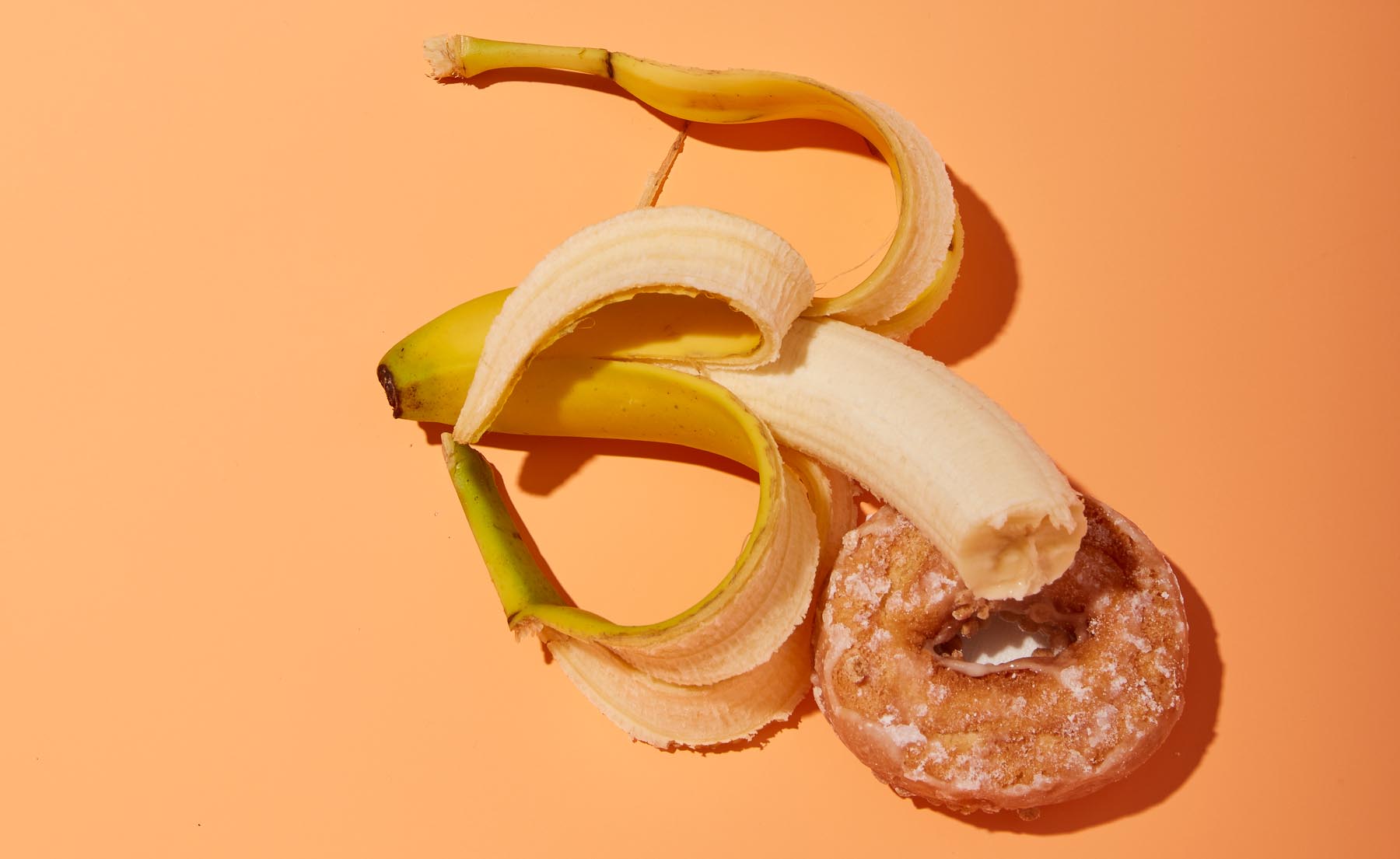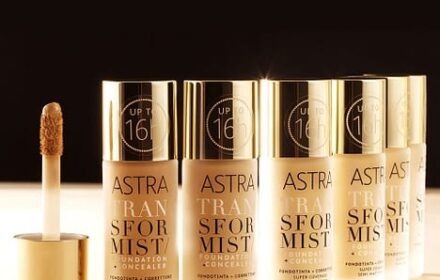 Medically reviewed by Mary Lucas, RN Written by Our Editorial Team Last updated 7/29/2020
Medically reviewed by Mary Lucas, RN Written by Our Editorial Team Last updated 7/29/2020
Dealing with premature ejaculation can be a frustrating, stressful experience. It’s also a very common one. About one in three men will experience premature ejaculation at some point in life, making premature ejaculation one of the most common sexual dysfunctions. Premature ejaculation, or PE, is a lack of control over ejaculation. If you have PE, you might ejaculate just a few minutes or seconds after penetration.
You may also ejaculate unintentionally during foreplay. While it’s common for PE to happen occasionally, when it occurs regularly, it can take a major toll on your sex life. People use all types of strategies to help with the issue, but lidocaine spray for premature ejaculation is a helpful option.
Lidocaine sprays, which lower sensitivity in the tip of your penis, can help you last longer during sex and deal with PE for good.
Below, we’ve explained how and why premature ejaculation happens, how lidocaine spray can help and how you can use lidocaine to treat PE and enjoy better sex with your partner. We’ve also answered some of the most common questions about using lidocaine spray to treat PE.
Why Does Premature Ejaculation Happen?
Before we get into why premature ejaculation happens, it’s important to cover what premature ejaculation actually is. Clinically, premature ejaculation is defined as ejaculation “with minimal stimulation before, on or shortly after penetration and before the person wishes it.”
On average, it takes about five minutes to seven minutes for a man to ejaculate during sex. However, there’s no specific time used to diagnose premature ejaculation. Instead, premature ejaculation is usually diagnosed based on factors such as:
- Difficulty having sex without preventing ejaculation
- Ejaculating almost immediately after penetration
- Disappointment or anxiety about your sexual performance
There’s also a frequency component to PE. It’s totally normal to ejaculate earlier than you’d like to sometimes. PE becomes problematic when you frequently ejaculate during foreplay or soon after penetration, to the point that it affects your sexual enjoyment and self-confidence.
It’s worth noting that premature ejaculation is very common. Studies show that as many as 39 percent of men experience PE at some point, meaning you’re definitely not alone if you experience PE.
Now, let’s get into why premature ejaculation happens. Unlike other medical conditions, there’s no single cause for PE. Instead, a variety of psychological and physical factors can all contribute to premature ejaculation.
Physical factors include:
- Sensitivity. Some men experience premature ejaculation because of a sensitive penis, which causes them to ejaculate earlier than expected.
- Prostate and/or thyroid problems, such as benign prostatic hyperplasia (BPH), can contribute to PE.
Psychological factors include:
- Anxiety about sexual performance can increase your risk of experiencing premature ejaculation, especially early in a relationship.
- Depression, stress and other psychological issues can affect sexual performance, causing you to ejaculate early during foreplay or penetrative sex.
- Other relationship problems can also affect your sexual performance and contribute to premature ejaculation.
Our Premature Ejaculation 101 guide goes into more detail on the main causes of PE, as well as common theories about PE that aren’t completely accurate.
last longer during sex
Control premature ejaculation once and for all
How Lidocaine Spray Can Treat Premature Ejaculation
Lidocaine is a local anesthetic that’s used to numb specific areas of tissue. It’s one of the most commonly used anesthetics in the world, applied either locally as a spray or cream, or by injection into specific parts of the body.
If you’ve ever had dental surgery, you’ve probably had lidocaine or a similar anesthetic applied to your gums.Yes, the same stuff the dentist injects into your gums before a root canal is the same stuff you can spray on your penis to rejuvenate your bedroom game. We know; what a time to be alive.
Anyway, lidocaine works by reducing sensitivity in your skin tissue. When it’s applied to your penis, lidocaine makes you have less sensation during foreplay and penetrative sex. This means you’re less likely to ejaculate earlier than you or your partner would like you to.
Studies of lidocaine sprays show that they work very well as a treatment for PE. In a small 2003 study, men with PE went from an average intravaginal ejaculation latency time (IVELT) of just 84 seconds without the spray to 11 minutes and 21 seconds with it.
The men who used the lidocaine spray didn’t report any negative effects on their orgasm quality or sexual experience. While lidocaine spray affects your sensitivity during sex, it doesn’t overly numb your penis or reduce sexual enjoyment.
As well as increasing the average time to ejaculate, the lidocaine spray also improved sexual enjoyment for the men and their partners. The men involved in the study and their partners both reported a significant, consistent improvement in sexual satisfaction from the spray.
How to Use Lidocaine Spray
Using lidocaine spray for premature ejaculation is simple. Apply lidocaine delay spray to the underside of the head and shaft of your penis 10 minutes to 15 minutes before sex. Then, rub it in a circle-shaped pattern until the spray is absorbed by your penis.
Lidocaine delay spray is often sold in a metered dose bottle, allowing you to apply one or several sprays to your penis. It’s best to start with one metered dose spray before sex. If you don’t notice a major improvement in ejaculation time, you can increase the dose within the instructions provided.
Everyone is different, meaning you might need multiple sprays before you achieve your desired level of sensitivity. Once you’ve worked out your dosage, it’s easy to use lidocaine spray before sex to reduce sensitivity to your desired level.
It’s best to wipe your penis with a wet towel or take a shower prior to sex to make sure there’s no spray left on your skin. Don’t forget to wipe your hands, as the lidocaine can numb your skin if it’s left there for too long.
It takes five to 15 minutes for lidocaine spray to start working, meaning you’ll want to wait before you start foreplay or sexual activity.
Frequently Asked Questions About Lidocaine Spray
Is Lidocaine Spray Safe?
Lidocaine is one of the world’s most common, thoroughly tested anesthetics. Overall, it’s safe and well tolerated by the vast majority of people. If you are allergic to lidocaine, you should not use lidocaine sprays to treat ED. You should discuss your medical history with your healthcare provider before you starting using lidocaine spray.
Does Lidocaine Spray Have Side Effects?
Used at the recommended dose, lidocaine spray side effects are minimal, if non-existent. However, it’s possible to experience lidocaine spray side effects if an excessive amount of spray is used. Some of the most common lidocaine spray side effects are:
- Temporary loss of sensitivity, which could lead to difficulty maintaining an erection during foreplay or penetrative sex
- Skin irritation and/or a burning sensation
- Excessive numbness due to overuse of the spray
Most side effects of lidocaine spray can be avoided by using a small dose of the medication at first, before gradually increasing the dose based on your experience and results.
Can You Use Lidocaine Spray if Your Partner is Pregnant?
Lidocaine is an FDA category B medication, meaning it hasn’t been proven safe for use during pregnancy. Because of this, it’s best to avoid using lidocaine sprays or other lidocaine products if your partner is pregnant.
Is it Safe to Use Lidocaine Spray With Viagra and Other ED Drugs?
Topical lidocaine and Viagra (sildenafil) do not interact with each other and are considered safe to use at the same time. Some studies have looked at the use of Viagra and topical lidocaine in combination as a treatment for PE with no reported negative effects.
How Long Do the Effects of Lidocaine Spray Last?
The effects of lidocaine can last for up to a few hours. Most of the time, you’ll notice the numbing effects of lidocaine spray for about one hour after applying it to your penis.
Should You Apply Lidocaine Spray While Erect or Flaccid?
You can apply lidocaine spray while your penis is erect or flaccid. Make sure to apply the spray to the head and shaft of your penis, as these areas are the most sensitive during foreplay and penetrative sex.
Is Lidocaine Spray Safe for Oral Sex?
As long as your partner doesn’t have a lidocaine allergy, lidocaine spray is safe for oral sex. As well as waiting for 10 to 15 minutes after applying the spray, you should wipe your penis with a wet towel or take a shower to wash away any excess spray before oral sex.
Can You Use Lidocaine Spray With a Lubricant?
Lidocaine spray is completely safe to use with a sexual lubricant. Make sure to wait for 10 to 15 minutes before sex to ensure the spray is effective and to wash off any remaining spray before sexual activity.
Can Lidocaine Spray Reduce Sensitivity for Your Partner?
Provided you wait for 10 to 15 minutes before sex, it’s uncommon for lidocaine sprays to have any effect on your partner’s level of sensitivity during sex. Make sure to wash away any excess spray before sex to reduce the risk of transferring topical lidocaine to your partner.
Does Lidocaine Spray Protect From Pregnancy or STDs?
Lidocaine spray is not a form of contraception and cannot be used to prevent pregnancy. It also doesn’t provide any protection from STDs, meaning you’ll want to use a condom or other form of protection to stay safe.
Other Ways to Treat Premature Ejaculation
Lidocaine spray is an effective way to treat premature ejaculation. However, it’s far from the only treatment option. Other ways to increase ejaculation time and treat premature ejaculation include:
- Sexual techniques, such as the “stop-start” strategy and the “squeeze” technique, can reduce sensation during sexual activity and help you avoid ejaculating earlier than you’d like to.
- Masturbating before sex. As simple as it sounds, masturbating before sex can help to increase your ejaculation time. During the refractory period (the recovery time between orgasms), it’s significantly more difficult for you to orgasm again during sex.
- Behavioral therapy. Studies show that behavioral therapy can be an effective treatment for PE. In one study, men with PE who were treated using a six-time therapy course had higher CIPE-5 scores (a score used to assess sexual function) than before treatment.
Our guide to preventing premature ejaculation covers all of these treatments in more detail, with real, science-backed data for each treatment option.
Learn More About Premature Ejaculation
Dealing with premature ejaculation can be a stressful experience. However, it doesn’t need to be permanent. From lidocaine spray to behavioral exercises, there are countless ways to treat PE and improve your sexual performance.
From key causes to symptoms, our Premature Ejaculation 101 guide goes into more detail on how PE happens, how it’s diagnosed and how you can treat it.
This article is for informational purposes only and does not constitute medical advice. The information contained herein is not a substitute for and should never be relied upon for professional medical advice. Always talk to your doctor about the risks and benefits of any treatment.
















